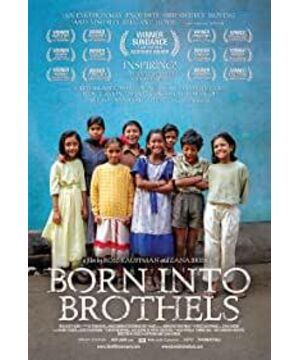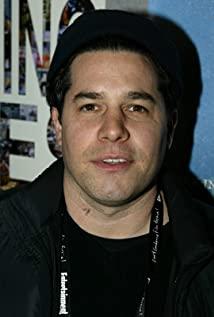they said: "My life is hopeless.
They said: I know I will be like them (parents) one day, but I don't want that.
They said: I want to get out of this place and go to school, I want to go to university.
They say: I want to be a photographer.
They say: The people here only understand money, and what you say to them is useless.
These words, uttered by an adult, may not be surprising. But coming out of the mouths of sex worker teens, you feel your heart being screwed. The words that seemed to be said casually were piercing like sharp thorns.
The man who opened a window to these children's dreams is Zana Briski. What she gave the children was a little point-and-shoot camera. With this little camera, children discover a strange world they have never experienced and never imagined. And it is with this little thing in hand that some of them may eventually completely change their destiny.
Re-watched the movie tonight and was moved again by it. Childish children face the scolding of "brat" and "bitch" from their biological parents every day. One of the children said: "When my mother yelled at me, I hated her too. But I remember one thing, she is my mom. When I grow up, she will grow old. I don't want to remember her faults.
Suffering is the cradle of precociousness. This group of over-mature children was ruthlessly thrown into the abyss of fate by an unknowable force.
But this review also gave me some space to think further. I'm thinking, in fact, the most interesting thing about this movie is the Western world's imagination of the East. brothels, slums, out-of-school children, these catchy words are precisely the elements that make the Zana project successful, and all of them are in line with the western white middle class's imagination of the poor and barbaric oriental culture. It's not that the children of brothers are not pitiful, it's not that their living environment is not compelling, but, when such a project can be popular in Sotheby's, when many New Yorkers donate generously to these children who can't beat the eight poles, I smelled a smell of bad intentions.
In the spring I watched another film about third world slum children. Forgive my aging memory, I can't even remember the name of the movie, just a documentary about the "wild children" of a slum built on a river beach in Cambodia/Philippines. Compared to this film, I prefer that film's perspective and interpretation. The film doesn't have the face and voice of the film maker, the kids talk, but there's no translation, and it's all about rock and the everyday life of the kids in that setting. You see them swimming, competing, selling garbage for money, singing karaoke that doesn't understand the lyrics, imitating Michael Jackson's dance moves, eating cheap ice cream, and peeking enviously at the school through the barbed wire In class, they sat around the garbage station in the early morning and cooked chicken bones that others had thrown away in a small aluminum pot. But they are so alive and full of energy. They don't beg people for sympathy, nor do they expect a film maker to change their destiny. Comparing Born into Brothers, I feel like this movie beats the pulse of these kids. However, a faculty who watched the scene argued with me that such a representation might reduce everyone's perception of the poor living conditions of children in slums. But I think that such a representation is exactly what the first world's observation of the third world lacks. The third world not only represents poverty, misery, cruel living conditions, not the contrast that the first world sense of superiority needs to find, but also represents many races, people's homes, joys, thoughts, contradictions, games, emotions and love.
It's not enough to give kids a camera, it's more important to teach them to discover why the world they see through a lens is so different.
View more about Born Into Brothels: Calcutta's Red Light Kids reviews








